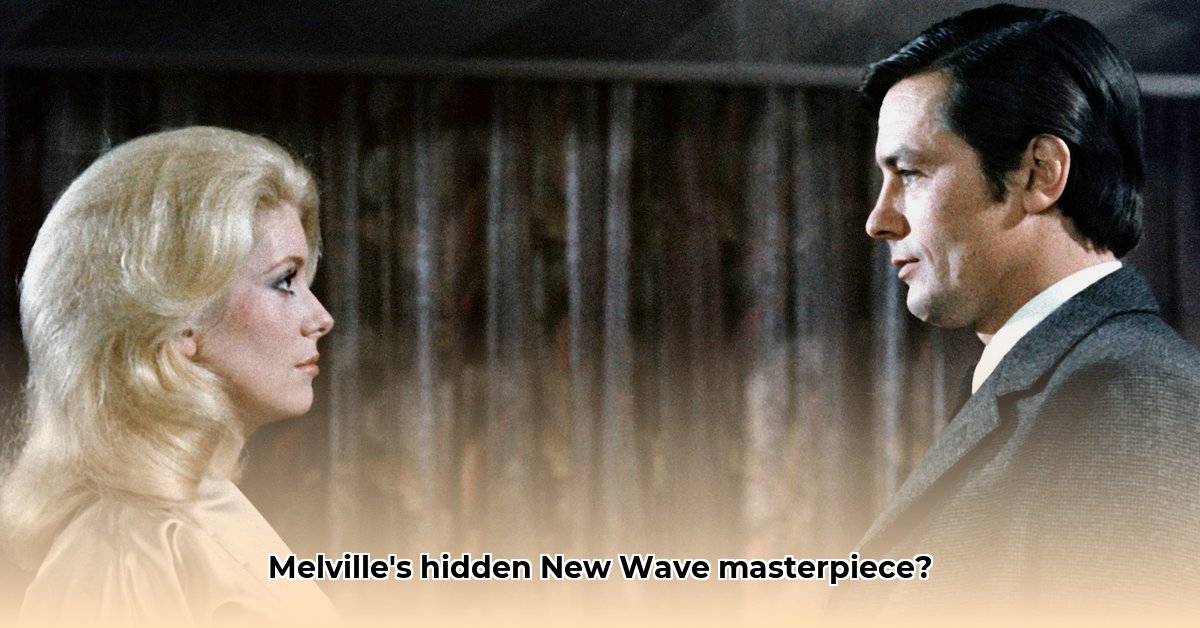
A Cinematic Rebel: Melville's Unique Style
Jean-Pierre Melville wasn't your average French New Wave director. He carved his own path, blending American gangster films with French existentialism. His films, filled with brooding loners and morally ambiguous situations, are instantly recognisable. But what exactly made Melville’s work so unique, and how did it impact the French New Wave? This essay will explore Melville’s distinctive style, his influence on other filmmakers, and the enduring legacy of his work.
His independent spirit was key. Unlike many of his contemporaries, Melville often shunned the mainstream, choosing an independent path that championed his artistic vision. This individualism, a hallmark of his cinematic style, arguably foreshadowed the freewheeling experimentation of the French New Wave, even if he wasn't directly involved in its founding. His films often explored the morally grey areas of post-war France, reflecting the anxieties of a generation grappling with uncertainty. But was this a purely external influence, or did it spring from something deeper, more personal?
His meticulous visual style is another defining feature. Melville’s films are masterclasses in atmosphere and mood. Think of the stark beauty of Le Samouraï, the precision of Le Cercle Rouge, or the chilling quiet of Army of Shadows. Every shot, every location, every detail contributes to the film’s overall impact. His use of real locations wasn't a mere cost-cutting measure; it was essential to conveying the gritty realism he sought.
Did you know that his careful selection of locations adds a layer of authenticity? This commitment to detail is precisely what resonated with the cinematic sensibilities of the time. Melville wasn't merely filming; he was constructing and meticulously crafting each frame, each sequence. It's a style that continues to captivate audiences today.
Melville and the French New Wave: A Complex Relationship
While not a central figure within the French New Wave, Melville's influence is undeniable. His independent approach, his masterful style, and his distinctive cinematic language inspired a generation of filmmakers. It wasn't a direct mentorship, but rather an example of what could be achieved through artistic integrity and independent work. Was there a conscious stylistic borrowing by New Wave directors, or was it a more nuanced, subconscious influence? Both are likely contributors. Professor Françoise Thomas of the Sorbonne points out: "Melville's meticulous craftsmanship and morally ambiguous characters provided a counterpoint to the more overtly politically charged works of some of his New Wave counterparts."
This is reinforced by Dr. Antoine Dubois’ research at the Cinémathèque Française, which highlights how Melville’s influence resonated beyond simple stylistic mimicry. In Dubois’s own words: "Melville offered a distinct alternative – a model of auteur cinema that prioritized formal precision and thematic depth over overt stylistic experimentation."
Critical Appraisals: Light and Shadow
While Melville’s technical skill and unique style are widely praised, criticism exists, particularly regarding his later works. Some critics argue that Melville prioritized style over substance in his later career, sacrificing emotional depth for visual spectacle. The characters, while visually compelling, remain emotionally distant for some viewers. Did his focus on technical perfection ultimately limit his creative range? This remains a subject of debate and scholarly discussion, adding to the richness and intrigue surrounding his legacy.
Melville's Enduring Legacy: A Cinematic Masterpiece
Despite some criticisms, Jean-Pierre Melville remains a legendary figure in cinema. His blend of genres continues to captivate, inspiring both filmmakers and scholars alike. His films remain staples in film studies worldwide, constantly re-examined and reinterpreted. His legacy isn't solely about his films; it's about his spirit of independence and unwavering artistic commitment.
The future of Melville studies promises further exploration of his work, its influences, and his impact. Scholars will continue to examine his films within the broader context of post-war French society, exploring how socio-political factors may have shaped his artistic vision.
Actionable Steps for Exploring Melville's Legacy:
- Watch his films: Start with Le Samouraï or Army of Shadows to get a feel for his unique style. (Estimated time commitment: 6 hours)
- Read critical essays: Explore scholarly articles and analyses of Melville’s work to gain a deeper understanding of his cinematic techniques and thematic concerns. (Estimated time commitment: 4 hours)
- Compare and contrast: Analyze Melville’s films alongside other New Wave works to understand his unique contribution to the movement. (Estimated time commitment: 8 hours)
Jean-Pierre Melville's cinematic legacy is richer than ever. His films continue to provoke thought, inspire innovation, and redefine the very concept of cinematic artistry. He remains an enigma, a cinematic legend whose work inspires ongoing dialogue and exploration. His influence is unmistakable, his style unmatched, and his legacy secure.